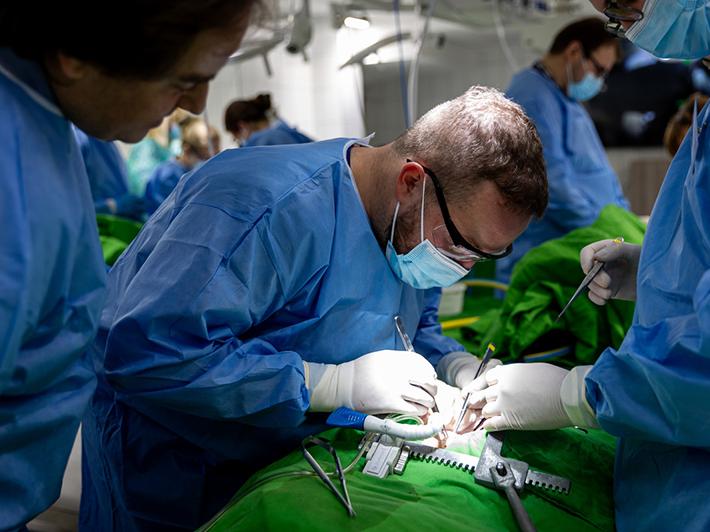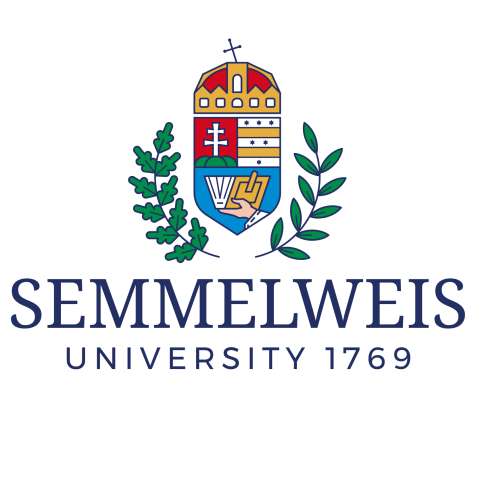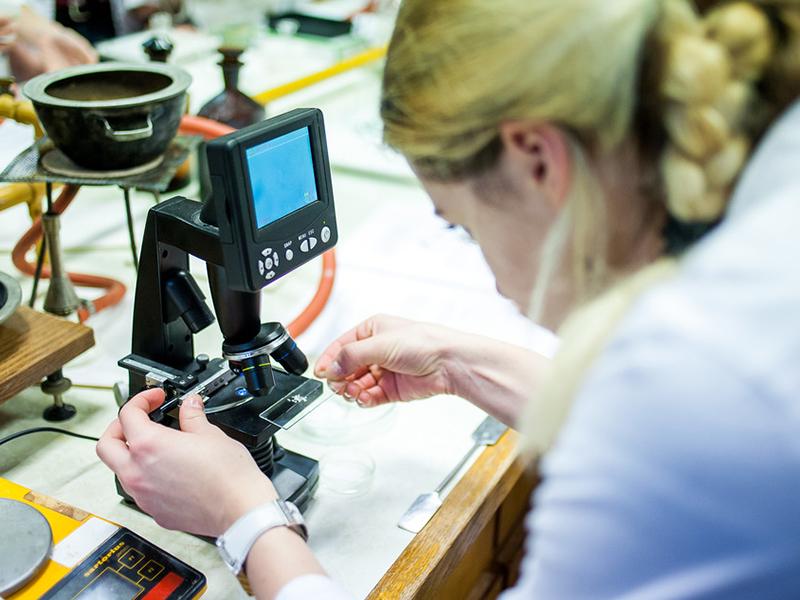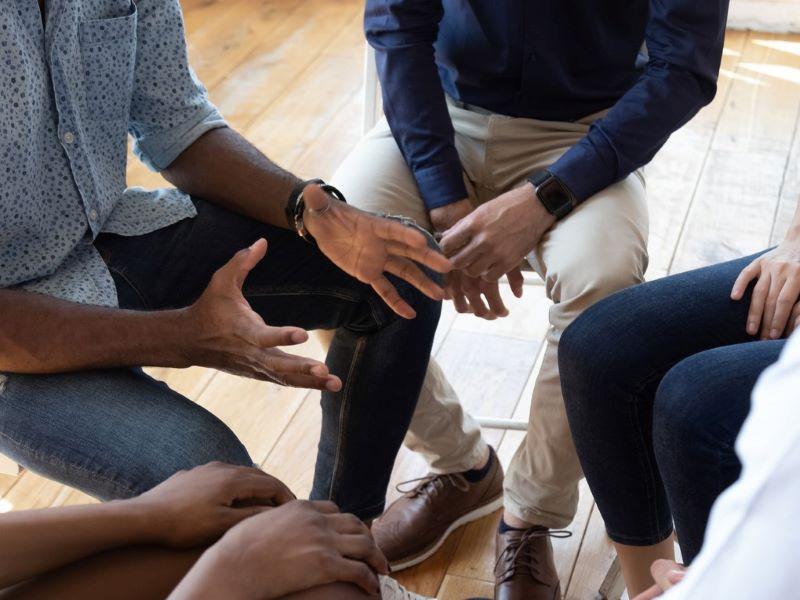
How to train world-champion cardiologists
You may also like
Talent support and knowledge transfer work best when the spirit of professional competition goes hand in hand with teamwork. Mentoring and intergenerational exchange also have a role in this area. The benefits of this approach can be borne out in international contests – and flow into improving innovation and patient care.
Here, teachers from Semmelweis University, who are cardiologists at the university’s Heart Centre, share their experiences and advice on collaboration and mentoring, based on their success in a 2023 electrocardiography (ECG) diagnostics competition.
Teamwork and a competitive spirit: the secrets of success
The competitive spirit and cooperation are not mutually exclusive. Combining competition with cooperation in talent support fosters a healthy learning environment for medical students and encourages the growth of each student.
At Semmelweis University (and in Hungarian universities in general), the approach starts when teachers invite talented students to participate in the work of the Scientific Students’ Association. Under the supervision of a professional in the chosen field, they usually prepare for a competition on campus, where the best research papers will be selected. These papers can advance to the National Scientific Students’ Association Conference organised by the National Council of Student Research Societies. The competitive spirit – the seeds of which are planted during the undergraduate years at the university – is present also at the postdoctoral level and lives on in the tireless activities of the working groups in which mentors work together with their fellows.
- Give educators the skills to bring assessment into the future
- Pledges and charters in medical schools: catalysts for change or performative promises?
- What underpins effective patient and public involvement in health and social care research?
The competitive and cooperative environment at the Semmelweis Heart Centre is beneficial not only for the doctors, as a driving force for continuous enhancement of their knowledge, but also, first and foremost, for the patients. As a result, patient care is provided by physicians who can offer an effective therapy based on the richest knowledge and technological advances available.
However, it is essential that competition not overshadow cooperation. In our working group, we are all happy if any one of our colleagues or a supervisee of a colleague is successful at a conference or a contest. We take it to be the success of the team, because behind this person there are always many other people – colleagues, fellow students, mentors and the grand old scientists of the field on whose intellectual legacy a specific discipline or working group is built – without whose example or support this success could never have been achieved. Success, too, is for the common cause: for the benefit of our patients.
Three pillars of mentorship in training physicians
In such a fertile environment, it is the mentor who still has a key role to play in developing talent. And what are the qualities that make someone a good mentor? In our experience, becoming a professional mentor has three pillars: competency, credibility and a spirit of continuity.
First, mentors should display a strong foundation of medical knowledge, clinical experience and specialised training, allowing us to effectively guide our supervisees’ professional development. To stay competent in our primary area of practice, we must practise continuous learning and stay up to date with advances and guidelines in our field. Competency goes hand in hand with an orientation to success in patient care, which, in our field of expertise, means consistently striving for positive patient outcomes.
Second, credibility is essential in establishing trust and confidence not only between doctor and patient but also between mentors and young doctors. For a mentor to be credible, and respected and trusted by their supervisee, they must have appropriate expertise in the relevant areas. Of no less importance are excellent communication skills. Mentors must be able to convey their knowledge and expertise effectively through clear explanations and constructive feedback. An honest and open environment encourages questions, discussions and the exchange of ideas. In the work of our team, for example, complex pathologies and diseases are inevitable. In such cases, older colleagues must pass on their experience to younger generations while remaining open to innovative ideas from young doctors.
Third, talent support can be successful in the long run only if it is done in continuity. In our working group, for example, mentors who give guidance to their students do this with the ammunition of the legacy of their grand old medical professors (such as Sándor Juhász-Nagy, József Tenczer and Zoltán Szabó in the field of cardiology). This spirit is carried forward by their former student Béla Merkely, the rector of Semmelweis University and head of the Heart and Vascular Centre. They work with their young colleagues and former PhD students, as well as with the PhD supervisees of their former PhD students. Thusly, in the interventional laboratories, several generations are present at the same time.
Competition and collaboration are a winning combination
Nothing justifies this approach to talent management more than the fact that being and working in such a professional atmosphere gives you the training, knowledge and skills to finish in first place in a global competition, even without any specific, tailored preparation for it. The best preparatory training has proved to be the daily practice at our clinic.
Every year, at the annual congress of the European Heart Rhythm Association, a competition is held for young cardiologists from all over the world to compare their skills in one of the most widely used methods for the diagnosis of heart diseases: electrocardiography. In 2023, the young cardiologists of Semmelweis University won this two-round competition. It is a great honour to win this tough competition, where the best professionals of different nations compare their skills based on the accuracy and speed of diagnoses.
Since then, we – the winning team and our mentor, László Gellér – have been invited to a handful of television programmes and interviewed by many media platforms to talk about this contest, and the key factors on the road to success.
László Gellér is a cardiologist, full professor and deputy head of the department of cardiology, and head of the electrophysiology working group and the department of day cardiology at the Heart Centre of Semmelweis University, Hungary. He is the president-elect of the Hungarian Society of Cardiology.
Zoltán Salló and Nándor Szegedi are both cardiologists and members of the electrophysiology working group at the Heart Centre of Semmelweis University, Hungary.
If you would like advice and insight from academics and university staff delivered direct to your inbox each week, sign up for the Campus newsletter.




